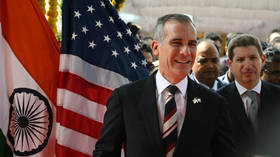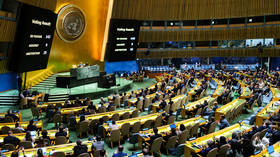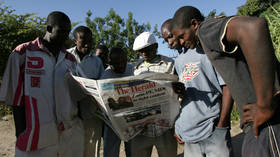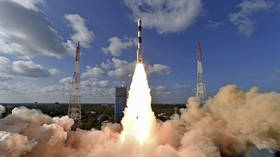African nation declares state of emergency over food shortage
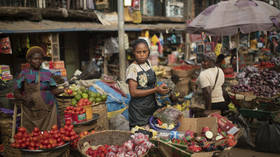
A state of emergency has been declared in Nigeria as a result of food shortages and surging prices, with the country’s government announcing a range of measures to address the crisis.
On Thursday, it was announced that fertilizers and grains will “immediately” be released to farmers, and 500,000 hectares of farmland and river basins will be activated for year-round farming.
The move will also expand the central bank’s role in financing the agricultural value chain.
“We declared a state of emergency and unveiled a comprehensive intervention plan on food security, affordability, and sustainability, taking decisive action to tackle food inflation,” President Bola Tinubu said on Twitter.
Tinubu emphasized that the goal of the intervention was to promote agriculture and increase job creation, pledging that “no one will be left behind” in his government’s efforts to ensure “affordable, plentiful food.”
Attahiru Bafarawa, a former governor of Nigeria’s Sokoto State, had warned earlier this month about banditry in the country’s north, saying it threatens food security and was a “serious disaster.”
Africa’s largest economy has seen a surge in the cost of food and transportation due to the president’s removal of fuel subsidies and sweeping exchange-rate reform since May.
In a statement on Thursday, government spokesperson Dele Alake said “savings from the fuel subsidy removal” would be directed at revamping the agricultural sector.
A National Commodity Board will be established and charged with reviewing food prices and maintaining a “strategic food reserve that will be used as a price stabilization mechanism for critical grains and other food items,” Alake said.
The cost of food in Nigeria had increased by 24.82% in May compared to the same time last year, according to the National Bureau of Statistics (NBS). It explained that the year-on-year increase in food inflation was caused, among other things, by price hikes in oil, yam, bread, cereals, and fish.





